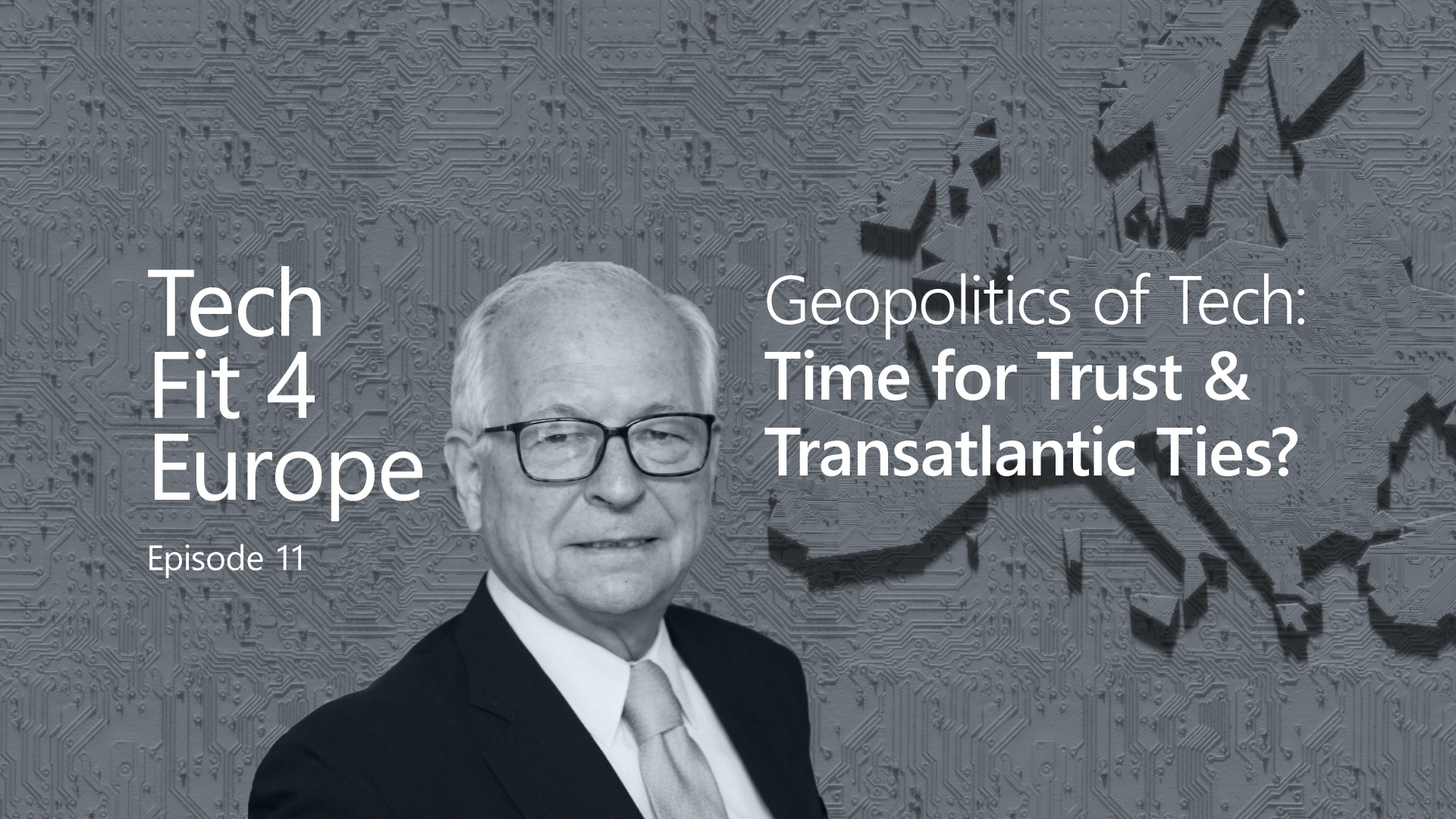The definition of what we understand as international security and diplomacy has changed fundamentally as digital technology has advanced. As recently as the 1990s, international security and diplomacy was almost exclusively the domain of foreign ministers, senior diplomats, defense ministers and generals. There was no place in global affairs for members of the tech industry. But that’s all changed as the world has become more digital, complex and interconnected. Earlier this week, during the NATO Summit, participants acknowledged the increase in “cyber, hybrid, and other asymmetric threats, including disinformation campaigns”.
One senior diplomat, Ambassador Wolfgang Ischinger, Chair of the Munich Security Conference, has seen first-hand how the evolving nature of threats in the 21st century has changed the global diplomacy and security landscape.
Ischinger says, “In today’s world, when I define international security, I cannot define this term without including in a very, very comprehensive manner all sorts of elements of technology. We cannot discuss cybersecurity, for example, among generals and diplomats because we’re simply, quite frankly, not competent in that. So, we need the tech folks…we need the next generation.”
In the latest episode of the #TechFit4Europe podcast, Ambassador Ischinger talks to Casper Klynge about these changes and their implications for diplomacy in a digital-first world.
Here are three key takeaways from their discussion.
1. An evolving security landscape
In the 20th century, conflict between nations meant armed conflict. But in the same way that technology is influencing every sector of business life, it is also reshaping our understanding of things like national security.
The cyberattack on the Colonial Pipeline oil transit network in the U.S., which took place in early May 2021, is one of the most recent examples of attacks by cybercriminals. The attack disabled a critical piece of U.S. energy infrastructure for four days and a ransom of $4.4m was paid to the attackers.
“The capacity to inflict damage is no longer a monopoly of governments,” Ambassador Ischinger explains. “The entire international system, the relationship, the power balance has changed in a fundamental way.”
Non-government actors can now take irresponsible action and inflict damage at scale.
This has implications for some of the existing international bodies, such as the UN. And Ischinger suggests that such shift means the tech industry has a greater role to play in international diplomacy.
“When I first attended this annual event in Munich [the Munich Security Conference] … way back in the 1990s when I was political director in the German Foreign Ministry, the people who came together there were generals, senior diplomats, foreign ministers, defense ministers, and some academic advisors and NGO representatives.”
“There was no tech industry present. We thought, or they thought, that the business of international crisis management was essentially something for diplomats and the military to handle.”
“The tech revolution … has brought about change which we diplomats find very hard to put our arms around. It’s a huge challenge and it’s only beginning,” he says.
2. The importance of trust
Trust is a cornerstone of democratic society. And it is essential that consumers, governments and societies all have trust in the way the use of technology is governed.
However, a survey carried out in six European countries on behalf of the Munich Security Conference in early 2021 found a high level of distrust in Europe around digital issues, with respondents mistrusting their own governments, and authorities in the U.S. and China even less.
Ischinger describes the result of this poll as “really quite worrisome”.
“We have a trust issue – a trust problem. And as I keep saying as a diplomat, trust is the currency of diplomacy. In the absence of trust, you’re not going to get any agreement signed or any treaty ratified,” he warns.
However, he also points out that it is a good time to restore the transatlantic community, building on President Biden’s commitment to work with allies and partners.
“If we don’t use this opportunity right now, we will miss a historic opportunity,” he warns.
“We should not wait for them to come to us. We should take interesting suggestions to them and engage with the Biden administration.”
3. Diplomacy in the digital age involves multiple stakeholders
Conversations between governments, diplomats and foreign policy executives are not the only important points of connection between countries. Commerce and trade have always been at the heart of international relations, and now there is a greater role than ever for the private sector in helping bind countries more closely together.
“I think the private sector has a potentially huge role to play in making sure that the transatlantic community uses this opportunity to get our act together,” Ambassador Ischinger urges.
Private-public partnerships are just one part of multistakeholderism, where all relevant stakeholders come together to make progress on important issues.
There are multiple routes to closer cooperation and Ischinger’s advice is to make good use of them.
“America is more than the White House. There are 50 governors, there are 100 senators, there are 400-plus members of Congress. There are huge numbers of German companies employing people all over the U.S. And, of course, there is an NGO community also, a civil society. So, let’s use those.”
Available on Spotify | Apple Podcasts | Google Podcasts | RadioPublic | Libsyn | RSS

